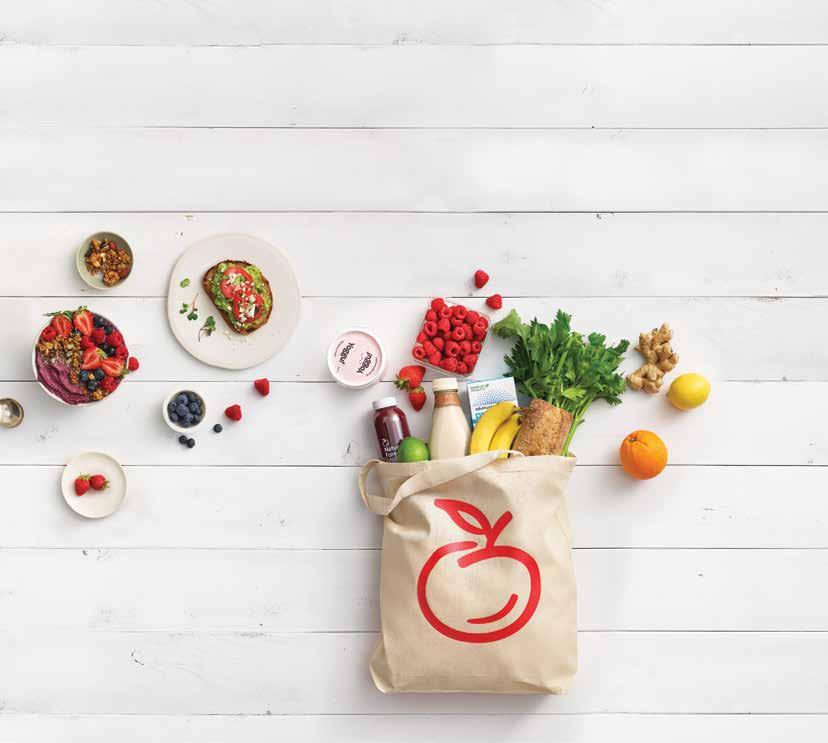

Eat the rainbow. A boost of nutrition in every scoop!
An organic and fermented fruit and vegetable blend that nourishes your body and elevates your wellness.
Very high source of fibre (6g per serving)
Source of iron
No added sugar






An organic and fermented fruit and vegetable blend that nourishes your body and elevates your wellness.
Very high source of fibre (6g per serving)
Source of iron
No added sugar



LET’S TALK: KIDS’ NUTRITION
Join this free webinar on kids’ nutrition with Caitlyn Vanderhaeghe, CEO of KidStar Nutrients, tackling picky eating, preventing nutrient deficiencies and bringing calm to kitchen chaos.
WHEN & WHERE :
September 9 | Online
LET’S TALK: INFLAMMATION
Join St. Francis Herb Farm and Julie Daniluk, bestselling author of Meals That Heal Inflammation, for powerful health advice and the latest science to help prevent inflammation and restore balance, plus nourishing recipes and a book signing.
WHEN & WHERE :
September 10 | Kamloops
September 11 | Vernon
Save big throughout the store—on everything from almonds to zinc and everything in between. Don’t miss our special deals and giveaways and try out samples too!
WHEN & WHERE:
September 18–20 | All Stores
LET’S TALK: MENTAL HEALTH
Join Natural Factors and Dr. Jennifer Brix and discover how the right nutrition and routines can boost kids’ brain health, manage emotions and improve focus for a successful school year.
WHEN & WHERE : October 1 | Vernon October 2 | Kamloops October 8 | White Rock
Book your free 30-minute appointment with one of our nutritionists today.

Marketing Director Stephanie Thatcher
Content Manager Chantelle Nuttley
Creative Director Janna Payne
Copy Editor Marilyn Fransen
Enjoy artisanal meats, cheeses and lively polka music while discovering delicious brands and sampling their offerings. Mark your calendar for this tasty celebration.
WHEN & WHERE :
October 15 | Kelowna October 16 | Vernon October 16 | White Rock October 17 | Kamloops
LET’S TALK: AGING
In this talk, Jason Watkin CEO and Co-Founder of Purica explores how ancient remedies now backed by science can help you age with more comfort, mobility and vitality—as well as better immune health and reduced risk of age-related diseases.
WHEN & WHERE : October 21 | Kamloops October 22 | Vernon October 23 | Penticton October 28 | White Rock
MORE EVENT DETAILS: naturesfare.com/upcoming-events
The health and well-being of our customers is central to our mission. We believe that learning how to live your healthiest life should be accessible to everyone. That’s why most of our Wellness Talks are made available for free to everyone. Dates subject to change.
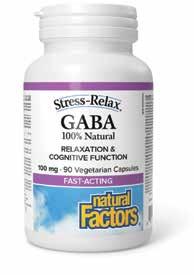
SUPPLEMENT
GABA is your brain’s natural calming agent, helping to quiet racing thoughts and promote relaxation without sedation. Natural Factors uses PharmaGABA®, a clinically studied, naturally sourced form shown to activate the parasympathetic nervous system—your body’s rest and digest mode. Taken orally, it’s absorbed through the gut and gets to work fast to support a calm, focused state.
Natural Factors Stress-Relax 100% Natural GABA



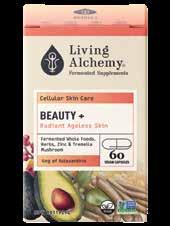
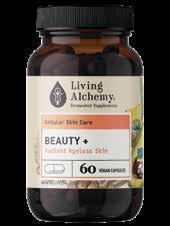
SUPPLEMENT
This cellular-level skin support formula is made from fermented organic whole foods that deliver highly absorbable vitamins, minerals and antioxidants. With ashwagandha, tremella mushroom, schisandra, lemon, avocado and 4 mg of astaxanthin, it helps combat stress and premature skin aging while nourishing hair, nails, immunity, bones and metabolism. Gentle and effective, it works from the inside out.
Living Alchemy Beauty+
SUPPLEMENT
Deep Immune is a foundational formula that helps balance and strengthen the immune system over time. The adult version blends eight powerful adaptogens including astragalus and reishi to build resistance to stress and infection. The kids’ formula features two key herbs—astragalus and codonopsis—for gentle immune support that also helps counter fatigue. Try this trusted Canadian-made herbal remedy for year-round wellness.
St. Francis Herb Farm Deep Immune

As the days grow shorter and cooler, there’s something deeply comforting about turning inward in the fall. It’s the season of soft sweaters, simmering pots on the stove and cozy meals shared at home. And at the heart of it all? The humble root vegetable.
Beets, carrots, squash, parsnips, sweet potatoes and turnips might not be flashy, but these earthy treasures are rich in nutrients, hearty and naturally sweet—making them perfect for everything from soups and stews to roasted sides and nourishing bowls.
Root vegetables grow underground, drawing nutrients from the soil and storing them through the season. That makes them rich in minerals like potassium and magnesium, and packed with fibre, complex carbs and antioxidants. They’re also easy to digest and naturally warming—exactly what the body craves in the colder months.
In traditional Chinese medicine and Ayurvedic practice, seasonal eating is all about aligning with the rhythms of nature. In the fall, the focus is on grounding and supporting the body’s immune and digestive systems. Root veggies check all the boxes here—they nourish deeply, support stable energy and help balance blood sugar.
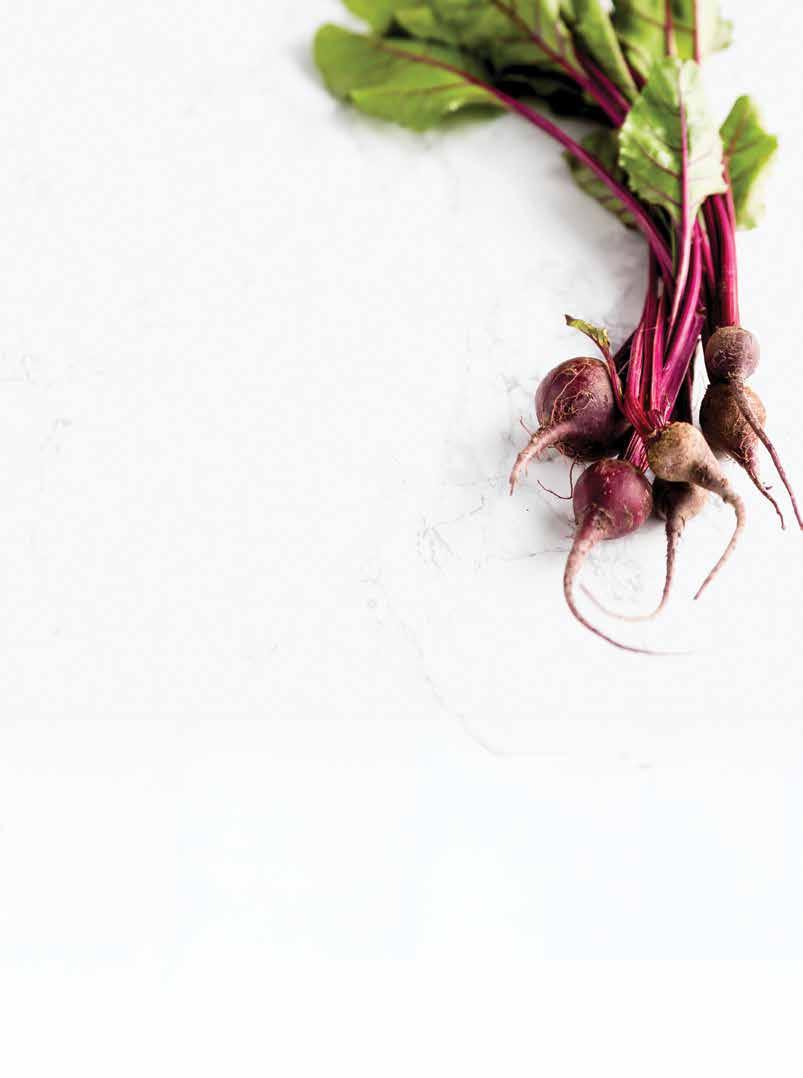
A quick guide to a few favourites and why they deserve a spot on your plate this fall.
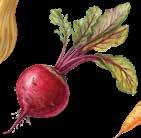
These vibrant beauties are full of betalains—powerful antioxidants that help support liver detox and fight inflammation. They’re also rich in folate, iron and nitrates, which can help improve circulation and lower blood pressure. Try roasting them with olive oil and rosemary or shredding them raw into a fall slaw with apple and lemon.

Often overlooked, parsnips offer a slightly sweet, nutty flavour and a good dose of vitamin C and folate. They pair beautifully with carrots and leeks in a puréed soup or can be roasted for a crispy, caramelized side dish.

Famous for their beta-carotene (a precursor to vitamin A), carrots support eye health, skin and immune function. Their natural sweetness intensifies when roasted, making them a favourite for soups, mash or simply tossed with maple syrup and a touch of cinnamon.
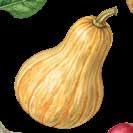
Technically not a root vegetable, squash is a fall staple nonetheless. Varieties like butternut, acorn and kabocha are loaded with vitamins A and C, along with fibre and slowdigesting starches. They’re perfect for hearty stews, pasta sauces or simple roasted halves filled with grains and herbs.

These fibre-rich tubers are an excellent source of complex carbs and potassium. Their orange flesh signals a high dose of antioxidants—especially carotenoids. Bake them whole, slice them into fries or cube and roast them with cumin and smoked paprika for a spicy kick.
Continued on page 7
LAIKI crackers do it all — from snack time to showtime. Made with just a few ingredients, minimally processed, and packed with whole-grain goodness and bold flavor. Delicious enough for your next charcuterie board. Clean enough for your lunchbox. Gluten-free, non-GMO, and 100% indulgent.
Support digestion and add depth to your meals.
CINNAMON
sweet, warming, anti-inflammatory
GINGER
great for digestion and circulation
TURMERIC

CHEDDAR CHEESE FLAVOR
Our extra crispy and extra crunchy crackers are made with real cheese! With delicious taste and clean ingredients — it is the perfect guilt-free snack.
GLUTEN-FREE LAIKI crackers are made with brown rice which is naturally gluten-free, a perfect alternative for almond flour crackers.

100% WHOLE GRAIN
Made from wholegrain brown rice with no added preservatives or additives. This snack is ideal for people who are on a low-calorie diet. It contains 20 g of whole grains per serving.
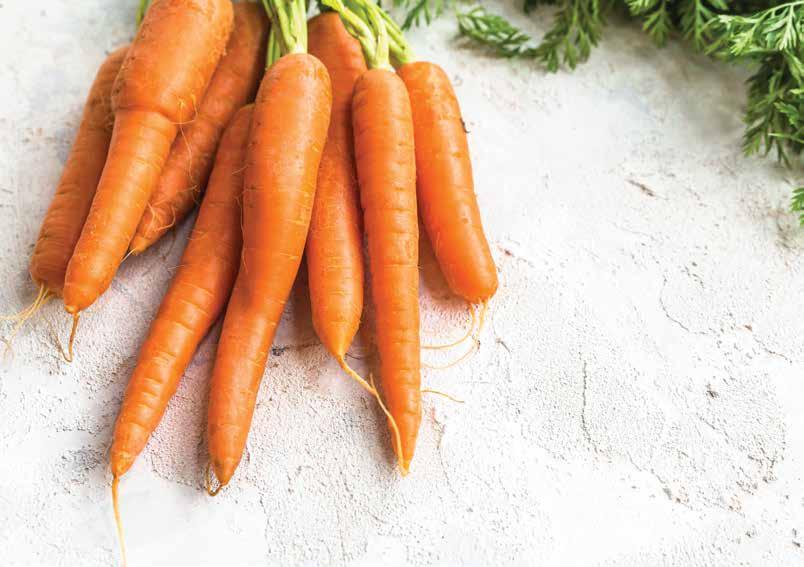
antioxidant-rich and anti-inflammatory CUMIN
adds warmth and supports gut health
NUTMEG
lovely in squash or carrot soups
Try adding these spices to soups, curries or roasted veggies for a cozy kick.
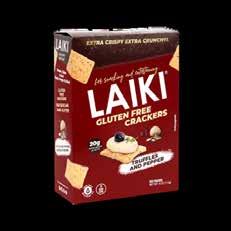
TRUFFLES & PEPPER
Our extra crispy and extra crunchy crackers are made with real black truffles! With delicious taste and clean ingredients, it’s the perfect guilt-free snack.
GLUTEN-FREE
LAIKI crackers are made with brown rice,which is naturally gluten-free — a perfect alternative to almond flour crackers.

100% WHOLE GRAIN
Made from wholegrain brown rice with no added preservatives or additives. This snack is ideal for people on a low-calorie diet and contains 20 g of whole grains per serving.
IDEAL FOR LACTOSE INTOLERANT
Many crackers add whey to improve texture and taste, but LAIKI crackers don’t. That makes them a better option for people who are lactose intolerant.
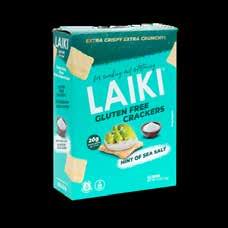
HINT OF SEA SALT
Our extra crispy and extra crunchy crackers are made with real sea salt! With delicious taste and clean ingredients, it’s the perfect guilt-free snack.
GLUTEN-FREE
LAIKI crackers are made with brown rice, which is naturally gluten-free — a perfect alternative to almond flour crackers.
100% WHOLE GRAIN
Made from whole grain brown rice with no added preservatives or additives. This snack is ideal for people on a low-calorie diet and contains 20 g of whole grains per serving.

HEALTH & TASTE COMBO
Deliciously light, high in protein, and crunchy making them ideal for low-carb & sugar-free diets. They are a delicious alternative to fried snacks!
As much as fall is about embracing nutrient-rich foods, it’s also about slowing down and enjoying the ritual of cooking again. Summer often has us eating on the go or opting for quick salads and smoothies. But fall invites us back into the kitchen.
Roasting a tray of mixed root vegetables with garlic and herbs fills your home with the kind of warmth that no scented candle can match. Simmering a pot of soup or sauce on a Sunday afternoon becomes less of a chore and more of a comfort ritual. Even baking a simple squash loaf or carrot muffins can feel like an act of seasonal self-care.
Choosing what is in season doesn’t just taste better—it also connects us more deeply to where we live. In Canada, fall harvests are rich with root vegetables that store well into the winter, making them accessible, affordable and sustainable.
Eating this way supports your body’s natural rhythms. Cooler weather signals a need for denser foods that warm from the inside out. That’s why chilled salads start to lose their appeal and slowcooked stews, roasted veggies and warming curries take their place.
It’s also a good time to focus on cooked over raw, warm over cold, and spiced over plain. Adding warming spices like ginger, cinnamon, turmeric or cumin boosts not only flavour but also digestion.
Root vegetables remind us that sometimes, the most nourishing things grow in the dark and take time. They’re exactly what we need to feel steady, well-fed and grounded. As the world speeds up again with back-to-school and busy routines, these foods offer an anchor.
There’s nothing quite like coming home to the smell of roasted squash or digging into a warm bowl of soup on a crisp fall evening. That’s the beauty of seasonal eating—it nourishes both body and soul.
Created by Robin at Greens, Eggs and Yams
When the air turns brisk and leaves crunch underfoot, the kitchen becomes a place for warmth and abundance. This season, we’re serving plant-based fall foods that bring together the flavours of the season with comfort you can feel good about.
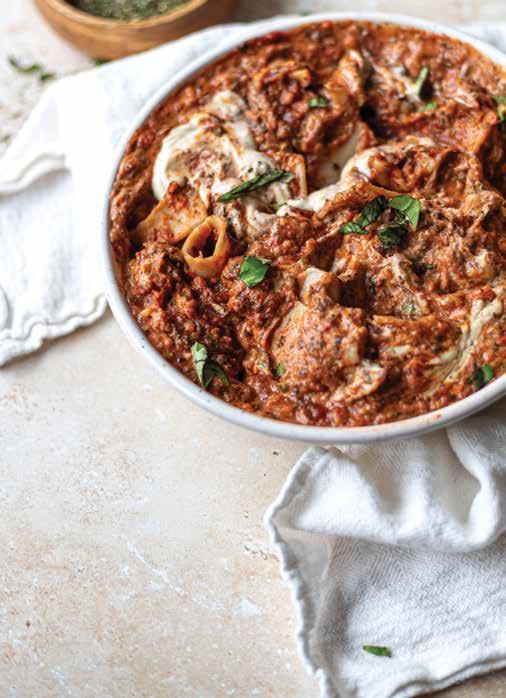
Serves 4 | 1 hour
⅓ cup red lentils
half red onion, finely diced
2 ½ cups (200 g) mushrooms, finely chopped
3 garlic cloves
1–2 cups vegetable broth
28 oz can crushed tomatoes
1 ½ tsp Italian seasoning salt and pepper to taste
7–10 lasagna noodles, broken up into pieces
¼ cup fresh basil, roughly chopped
VEGAN RICOTTA
2 cups raw cashews
¾ cup water
1 tbsp olive oil salt to taste
1. Prepare the lentils. Add the lentils to a small pot filled halfway with water. Bring to a boil then reduce heat to low and simmer, covered, for 4 minutes. Remove from heat, keep covered, and let it sit for 2 minutes. Drain and set aside to cool.
2. Prepare the cashew ricotta. Soak the cashews in hot water for at least 10 minutes. Drain, then add the cashews to a small cup blender with water, olive oil and salt. Blend until smooth and thick. Set aside.
This vegan lasagna soup has all the comforting vibes you’re looking for in a fall recipe. The cashew ricotta is rich and creamy and takes this lasagna to the next level. The heartiness of the dish comes from the lentils, mushrooms and savoury noodles. It’s a simple dish to make with amazing flavours.
3. In a large skillet, heat 1–2 tsp of oil over medium heat. Add the onion and cook until soft. Add the mushrooms and garlic and cook for a few minutes.
4. Add the crushed tomatoes, 1 cup of vegetable broth, Italian seasoning, and salt and pepper to taste. Add more broth later if you want a thinner soup. Stir in lentils.
5. Bring to a boil, then add the noodles. Reduce heat to low and simmer 15–20 minutes until the noodles are cooked.
6. Divide among bowls and top with fresh basil and cashew ricotta.
Continued on page 9
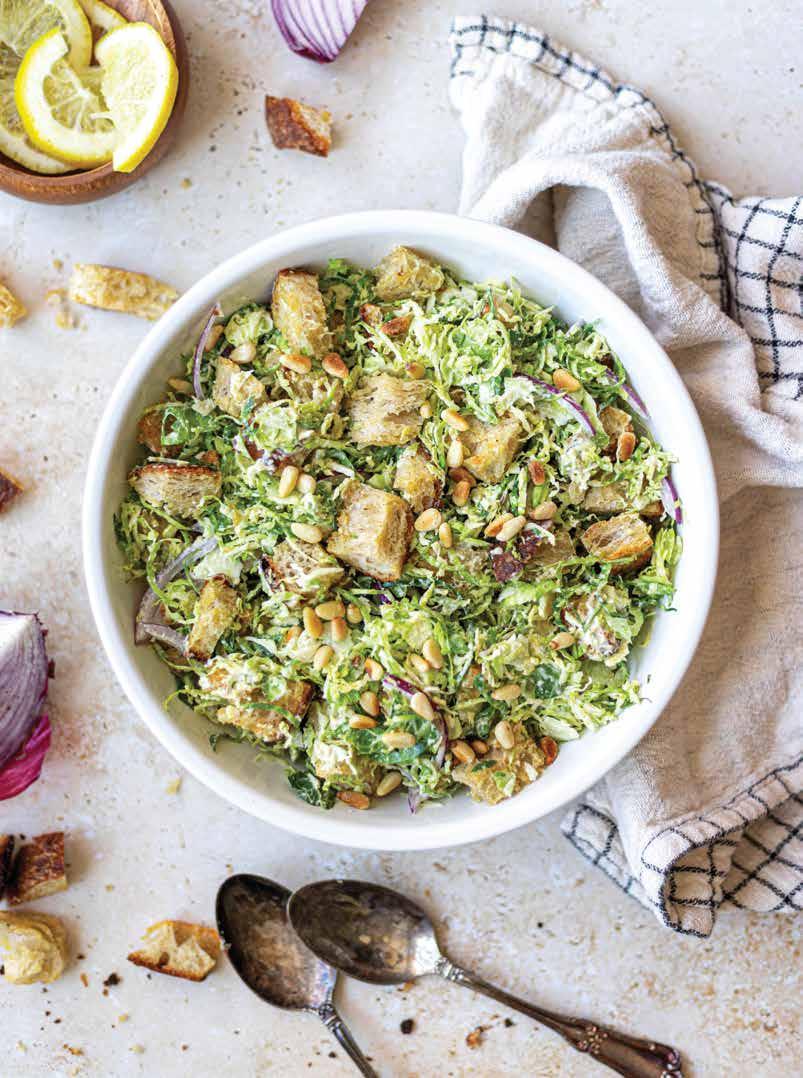
Serves 4 | 30 minutes
This vegan Caesar salad combines shredded Brussels sprouts, pine nuts and red onion with a rich, creamy dressing and crispy homemade garlicky croutons.
1 lb Brussels sprouts
¼ red onion, sliced
¼ cup pine nuts, toasted
CROUTONS
4 cups bread, cubed
2 tbsp olive oil
1 tsp garlic powder
½ tsp sea salt
DRESSING
½ cup raw cashews
2 tsp Dijon mustard
1 tbsp lemon juice
2 tsp capers + 2 tsp brine
2 tbsp nutritional yeast
1–2 garlic cloves
¼ cup olive oil
2 tbsp water salt and pepper to taste


1. Preheat the oven to 350°F and line a baking sheet with parchment paper.
2. Soak the cashews in a bowl of hot water for at least ten minutes.
3. Toss the bread cubes in olive oil, sea salt and garlic powder. Spread out on the baking sheet and bake 10–15 minutes, tossing halfway, until golden. Set aside to cool.
4. Prepare the dressing. Drain the cashews then add with rest of the dressing ingredients to a high-speed blender. Blend until thick, smooth and creamy, adding additional water if needed. Set aside.
5. Prepare the salad. Using a mandolin, thinly slice the Brussels sprouts then transfer to a large salad bowl. Add in the croutons, toasted pine nuts and sliced red onion. Toss with the salad dressing and enjoy immediately.
a time.








Hydration and protein are two of the most important factors in maintaining peak performance, whether you’re pushing through an intense workout, recovering post-training, or simply staying active throughout the day. But what if you could get the best of both worlds in one refreshing drink? That’s where Organika’s All Day Protein Hydrator comes in—your ultimate hydration and recovery partner.
Unlike traditional sports drinks that focus only on electrolytes or protein powders that require heavy mixing, Organika’s All Day Protein Hydrator delivers both in one light, refreshing solution. Each serving contains 5g of hydrolyzed collagen protein, an easily absorbed form of protein that supports muscle repair, joint health, and recovery. Paired with essential electrolytes, this drink is designed to help you power through your day—before, during, and after your workouts.
Hydration has never tasted this good. All Day Protein Hydrator comes in two refreshing flavours: Raspberry & Lemonade. Whether you prefer a fruity burst of berry or a zesty citrus kick, both options provide a delicious way to fuel your body while maintaining hydration.
Athletes & Fitness Enthusiasts – Support muscle recovery and optimize hydration.
Active Lifestyles – Stay hydrated and energized throughout the day.
Anyone Looking for a Clean Sports Drink Alternative – No artificial colors, flavors, or added sugar.
This May and June, find Organika’s All Day Protein Hydrator at Nature’s Fare Markets locations and experience the benefits of hydration and protein in one easy, delicious drink. Stay strong, stay hydrated, and power your performance with every sip.

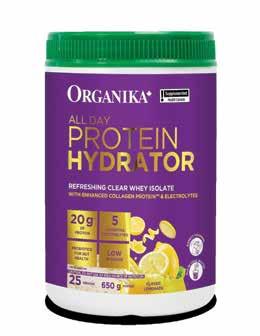


Contributed by Chelan Wilkins, RHN from Organika
Thanksgiving will always have a special place in my heart, having grown up in a family that has carried the tradition just like many others and then celebrating with my own. It is a time we can be with our loved ones and share what we are truly thankful for, especially over the feast. No Thanksgiving meal is complete without good gravy with bone broth! Here is my simple recipe.
This recipe is quick and simple, which makes prepping for a Thanksgiving feast so much easier. Make this recipe your own by making a twist like adding the juices from your Thanksgiving turkey or mixing in some fresh rosemary or roasted garlic. With that said, don’t be afraid to be creative and think outside the box.
Easy | Makes 2 cups
¼ cup butter
¼ cup flour
2 cups Organika Chicken Bone Broth Powder
¼ tsp salt
¼ tsp pepper
1 tsp Organika Coconut Sauce (more if you like)
Boost gut health and nutrition


1. Melt butter in a saucepan over medium heat. Add flour and whisk together, making sure to remove all visible lumps.
2. Add salt and pepper.
3. Cook over medium heat for 5 minutes or until mixture starts to turn light brown; be sure to stir constantly.
4. Turn heat to low and slowly add broth, stirring constantly. It will spit and bubble so be careful.
5. Add Organika Coconut Sauce.
6. Turn heat back up to medium.
7. Continue stirring until gravy boils and thickens.

As cooler weather rolls in, so does the urge to “boost” our immune systems. From catchy headlines to online ads, the message is everywhere: strengthen your defenses! But here’s the truth— your immune system isn’t a muscle you can pump up overnight. It’s a complex, dynamic network that needs balance, not brute force.
In fact, trying to overstimulate the immune system can do more harm than good. True wellness comes from supporting the body’s natural ability to regulate, respond and recover. That means focusing on what helps create a strong foundation for immune resilience, not just during cold and flu season but all year long.
Let’s break down what that really looks like—especially for families heading into fall and winter.
Why Balance Matters More Than “Boosting”
The immune system is made up of many moving parts: white blood cells, lymphatic tissues, the gut microbiome and even the skin and respiratory tract. These systems
need to be responsive but not overreactive. A balanced immune system fights off pathogens effectively but also knows when to stand down. An overactive response can lead to inflammation, allergies or autoimmune issues.
Instead of asking, how do I boost immunity?—a better question is, how do I create the right conditions for my immune system to work as it should?
Start with the Basics: Lifestyle Matters More Than You Think
You don’t have to wait for the first signs of a sniffle to build up a healthy immune system. Everyday choices shape how well your body can respond to threats.
• Sleep is Not Optional
Aim for 7–9 hours for adults and more for kids, especially during times of growth or illness. Sleep is when the body repairs, resets and clears out inflammatory molecules that suppress immune function.
• Manage Stress
Chronic stress raises cortisol, which can suppress immune activity and impair gut health. Try calming routines like deep breathing, walks in nature, journaling or simply turning off the news for a while.
• Move Your Body
Regular, moderate exercise increases circulation of immune cells and lowers inflammation. For kids, outdoor play is key. For adults, brisk walks, yoga or strength training 3–5 times a week can do wonders.
• Get Outside Vitamin D levels tend to drop in fall and winter—and this fat-soluble vitamin is essential for immune regulation. Fresh air and a bit of sunlight help with both mood and immunity.
Eat to Support (Not Stress)
Nourishment plays a central role in immune health, especially in the colder months when fresh produce might be less varied and appetites shift to warming comfort foods.
• Get in Whole, Colourful Foods
A variety of fruits and vegetables provides antioxidants, vitamins and fibre that help protect cells and fuel your gut microbiome—home to over 70% of your immune system.
If you or your child is dealing with several of these, it might be time to check in with a practitioner for deeper immune or gut support.
• Orange and dark green veggies (carrots, squash, kale) for vitamin A
• Berries and citrus fruits for vitamin C
• Mushrooms for beta-glucans
• Garlic and onions for natural antimicrobial support
• Keep Blood Sugar Steady
Excess sugar can suppress immune activity. Build meals with balanced portions of protein, healthy fats and complex carbs to help kids (and adults) stay full and focused.
• Don’t Forget Fluids
Hydration supports lymph flow and helps flush out waste. Warm teas with lemon, bone broth or just plenty of water keep things moving.
When the basics are covered, supplements can fill in the gaps and offer gentle, proactive support especially as the body’s needs change.
• Vitamin D
A must-have in the colder months, it helps regulate immune responses and supports respiratory health. Adults may need 1,000–2,000 IU daily, and kids often benefit from a liquid form dosed by weight.
• Medicinal Mushrooms
Reishi, chaga and turkey tail contain beta-glucans that help modulate the immune system—calming an overactive response and enhancing underperformance. Look for powders, capsules or liquid extracts from trusted Canadian brands.
• Zinc Zinc is essential for white blood cell function and wound healing. A little goes a long way—15 to 30 mg daily is plenty for adults. Too much can upset the stomach, so always follow label directions.
• Probiotics
A healthy gut is a major player in immune defense. A multi-strain probiotic with both Lactobacillus and Bifidobacterium species can help maintain microbial
balance—especially after antibiotics or illness. For kids, look for age-appropriate chewables or powder-form probiotics that are easy to mix into smoothies or yogurt.
• Elderberry & Echinacea
These herbal allies can help shorten the duration of colds when taken at the first sign of symptoms. They’re also helpful during high-exposure times, like back-to-school or travel. Look for sugar-free syrups or alcohol-free tinctures for little ones.
• Adaptogens
Ashwagandha, rhodiola or holy basil can help regulate the stress response, which in turn helps balance immunity. These are best used under the guidance of a health professional if you’re taking medications. (For teens and adults only.)
So, as temperatures drop and the school year ramps up, give your immune system what it really needs—everyday balance, not overload. Because true health isn’t about quick fixes. It’s about making space for resilience to grow.





Written by Lisa Kilgour, rhn
If cortisol were a person, it’d be that overworked assistant trying to hold your whole life together…while quietly burning out. And yet, cortisol still gets blamed for everything from stubborn belly fat to sleepless nights.
But cortisol is not the enemy. Without it, you wouldn’t even be able to get out of bed in the morning, literally. It’s your body’s built-in alarm system. It wakes you up, and helps you move, think, talk and power through the demands of daily life. It also helps you survive real emergencies (and not just the metaphorical ones involving emails and traffic).
Cortisol’s job was never meant to be a full-time gig. It was not built for back-toback deadlines, late-night doomscrolling, skipped breakfasts or HIIT workouts on five hours of sleep.
In a perfect world, cortisol rises in the morning to get you going, then gently tapers off so you can wind down at night. But for most of us, it either stays cranked up all day or tanks completely—leaving you wired, tired, foggy, anxious, craving sugar and wondering why you feel like a shell of your former self.
This is exactly where “The Cortisol Diet” comes in.
It’s a buzzy phrase right now, especially in the wellness world. But what does it actually mean? Can what you eat really lower cortisol? And is this just another overhyped fad or something worth paying attention to?
Let’s break it down.
What Even Is The Cortisol Diet?
To be clear, the Cortisol Diet isn’t a formal, one-size-fits-all meal plan. It’s more of a nutritional philosophy rooted in functional
medicine. The goal is to help regulate cortisol naturally by stabilizing blood sugar, reducing inflammation and supporting the body’s stress response system (AKA your HPA axis).
Here’s what that typically looks like:
• Eating regular meals (no skipping breakfast and surviving on caffeine)
• Combining protein, healthy fats and fibre to prevent blood sugar crashes
• Swapping out refined carbs and sugary snacks for slow-digesting whole foods
• Focusing on nutrient-dense ingredients that support adrenal health, like leafy greens, wild-caught salmon, avocado, pumpkin seeds, berries and good quality sea salt (yes really, salt can be medicinal)
• Managing your meal timing: eating within an hour of waking, avoiding heavy meals right before bed
What’s often missed by Cortisol Diet influencers is the importance of hydration. Even mild dehydration can raise cortisol levels, which means starting your day with coffee and nothing else might be stressing your system more than you realize.
The Cortisol Diet works because it’s built around habits you can control. You might not be able to quit your job or escape the school drop-off chaos, but you can eat something nourishing before noon. You can carry a water bottle. And you can stop fasting, which, by the way, isn’t discipline—it’s a cortisol spike waiting to happen.
Why Blood Sugar Is a Big Deal
Cortisol works closely with your blood sugar. When your blood sugar drops too low, your body panics. Cortisol kicks in to bring your blood sugar back up, because your brain needs glucose to function. If this happens all the time, your cortisol gets stuck in a loop of overdrive.
That’s why stabilizing blood sugar with real food is one of the fastest ways to calm the cortisol chaos. It also explains why eating more often, not less, can actually help with stubborn weight, energy crashes and cravings.
But keep in mind that low-carb diets can backfire, especially for women. When you’re not eating enough carbohydrates to fuel your brain, your body also sees that as a stressor and it raises cortisol to compensate. Over time it can leave you more anxious, more fatigued and more hormonally out of whack than before.
If you’re dealing with burnout, sleep issues or hormonal shifts (hi, perimenopause), going low carb can make things worse.
Can Food Alone Fix It?
Now, as much as I love the power of nutrition, I’m not going to pretend that a smoothie will save you from a cortisol spiral if your sleep is a disaster and your boundaries are non-existent.
Food is foundational, but it’s only one piece.
If you’re serious about balancing cortisol, you also need to look at your lifestyle:
• Are you sleeping enough and sleeping well?
• Are you over-exercising in the name of “wellness” but feeling worse?
• Are you constantly in go-mode, without giving your nervous system a chance to come down?

And let’s not forget the invisible stressors: emotional overwhelm, toxic work culture, that constant pressure to do it all. No amount of chia seeds is going to regulate your cortisol if your life feels like a treadmill you can’t get off of.
So… Is the Cortisol Diet Legit?
Short answer: yes…with a caveat. It’s not a quick fix, and it’s not the answer to every health issue under the sun. But it’s a good starting point. You’re choosing to feed your body in a way that says, “You’re safe. You’re supported. You don’t have to fight or flee right now.”
When you eat in a way that keeps your blood sugar stable, nourishes your adrenals and honours your body’s natural rhythms, cortisol starts to do what it’s meant to do: help you wake up in the morning, respond to life’s challenges with resilience and rest deeply at night.
So yes, what you eat absolutely affects your cortisol. But how you live matters even more.
Want to Start Somewhere Simple? Try this:
• Eat a real breakfast with protein and fibre within 60 minutes of waking.
• Sit down for your meals.
• Swap the second coffee for a calming herbal tea (or green tea if you really need the caffeine).
• Say no to one thing this week that you don’t actually want to do.
• Take three deep belly breaths before bed.
Don’t call it a diet, call it a recalibration—a signal to your body that you’re safe, supported and ready to feel like yourself again.
Lisa Kilgour, rhn After years of being frustrated with her own health issues, she began looking at her health like a puzzle, searching for the missing pieces that would help her heal. Today, as a Registered Holistic Nutritionist (RHN), Lisa helps others piece together all the ways they care for themselves— emotions, gut flora, sleep, stress and food—to inspire health and healing. Learn more: lisakilgour.com
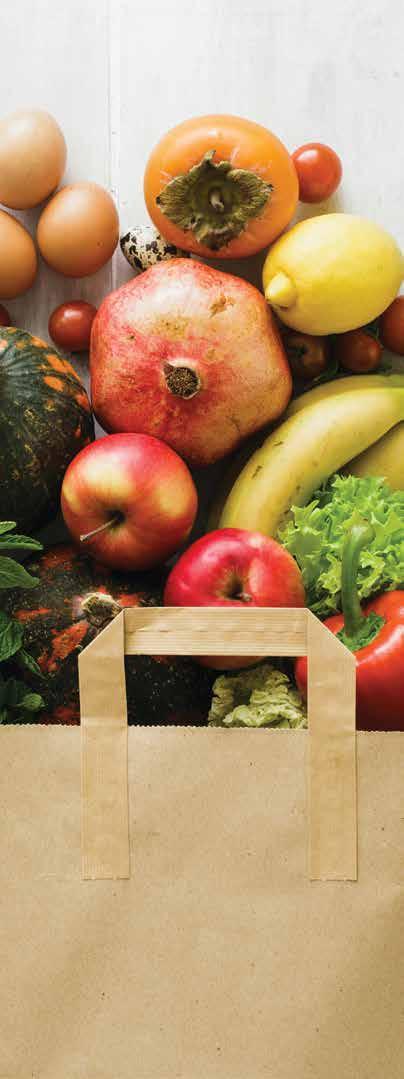
There’s something about fall that makes you want to slow down, nourish deeply and get ahead of cold and flu season before it sneaks up on you. While handwashing and rest go a long way, supporting your immune system with simple, whole-food ingredients can make a real difference—and it doesn’t have to be complicated.
Enter the humble tonic. These easy-to-make drinks are packed with natural ingredients like ginger, turmeric, apple cider vinegar and medicinal mushrooms. They’re functional, flavourful and the perfect daily habit to keep you feeling your best as the seasons shift.
These drinks are more than just trendy wellness rituals—many of their ingredients have been used in traditional medicine for centuries—and now science is catching up.
• Ginger supports circulation, eases nausea and helps reduce inflammation.
• Turmeric contains curcumin, a powerful antioxidant with immune-regulating effects.
• Apple cider vinegar helps balance pH, supports gut health and may have antimicrobial properties.
• Medicinal mushrooms like reishi and chaga are adaptogens, helping the body handle stress and regulate immunity.
• Citrus like lemon and orange offer vitamin C, an essential antioxidant for immune defence.
This classic is popular for a reason. Lemon is high in vitamin C, while fresh ginger supports digestion and helps tame inflammation. Starting your day with this warm tonic is like giving your immune system a gentle nudge in the right direction.
1 cup hot (not boiling) water juice of half a lemon
1 tsp grated fresh ginger

Optional: 1 tsp raw honey or a pinch of cayenne
Stir all ingredients into hot water and sip slowly. For extra kick, steep the ginger for 5 minutes before adding lemon and honey.
This spicy, tangy tonic has roots in folk herbalism and is designed to help ward off colds. Apple cider vinegar is the base, infused with immune-boosting ingredients like garlic, horseradish and turmeric. You can buy pre-made versions, but it’s easy to DIY.
1 cup raw, unfiltered apple cider vinegar
1 tbsp grated fresh ginger
1 tbsp grated fresh turmeric (or 1 tsp dried)
2 cloves garlic, crushed
1 tbsp chopped onion
Optional: 1 tbsp horseradish, 1 chili pepper (minced), 1 tbsp raw honey
Combine everything in a jar and let infuse for 2–4 weeks in the fridge or a cool spot, shaking daily. Strain and take 1 tbsp daily or use in dressings.
This one feels more like a treat than a tonic, but don’t let the chocolate fool you—reishi is a medicinal mushroom known for its immune-modulating, stress-reducing properties. When paired with antioxidant-rich cacao and a touch of sweetness, it makes a soothing afternoon drink.
1 cup warm plant-based milk
1 tsp reishi mushroom powder
1 tbsp raw cacao powder
1 tsp maple syrup or coconut sugar pinch of cinnamon or sea salt
Warm the milk gently on the stove and whisk in all ingredients until smooth. Sip slowly and enjoy the calm.
Turmeric is a rockstar for immune support thanks to its anti-inflammatory and antioxidant properties. When paired with black pepper (which helps your body absorb curcumin, turmeric’s active compound), this bright tonic becomes a go-to for immune health and joint support.
1 cup hot water or warm plantbased milk
½ tsp ground turmeric
¼ tsp ground ginger or grated
fresh
pinch of black pepper
Optional: 1 tsp coconut oil, 1 tsp raw honey
Whisk all ingredients into hot water or milk. Let sit for a few minutes, then stir again before drinking.
Think of this as a daily mineral-rich, gut-loving sipper. Apple cider vinegar supports digestion, balances blood sugar and may help reduce cold symptoms. Paired with warm water and cinnamon, it becomes a warming, energizing tonic you can enjoy daily.
1 cup warm water
1 tbsp raw apple cider vinegar
1 tsp raw honey or maple syrup pinch of cinnamon or ginger
Stir together and sip before meals or first thing in the morning. Not into warm drinks? It works cold too.
Tonics are also a great reminder that wellness doesn’t have to be complicated. It’s the small, daily choices—like choosing a warm, immune-supportive drink over a sugary one—that help build resilience over time.
These five immune-loving tonics you can whip up at home—no fancy tools or hours in the kitchen required. Just a few simple organic ingredients, some hot water and a little intention.

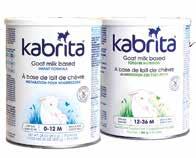


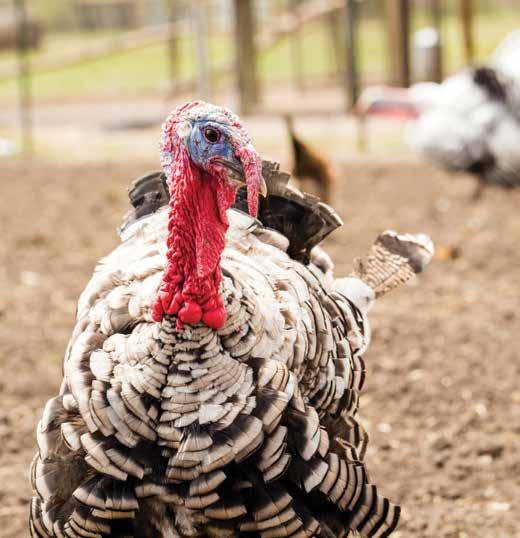
Most of us know the importance of shopping locally these days. It’s a time of pride for us Canadians as we band together province by province to secure our future one purchase at a time, investing in sustainable and ethical food production across our country. While we all know the messaging and see the signs, do we understand the why, and in particular, the who behind it all?
It’s our BC farmers: the individuals who provide good, locally raised food to each of our homes. They’re grounded in the community and connected to the land, waking up early every morning, season after season, bringing Nature’s Fare Markets and other grocers alike the best products possible.
When you shop at one of our seven locations, you know you’re buying the freshest, most delicious fare British Columbia has to offer. We work with farmers who share the same love and dedication toward organic food that we do, and those who prioritize community and sustainable initiatives
for natural and healthy lifestyles, because we truly believe it takes all of us to build a better future. Farmers like Jason Froese at JD Farms Specialty Turkey.
A third-generation poultry farmer, Jason has a deep-rooted connection to BC’s farming industry. He grew up on a farm and developed a passion for agriculture at a young age, and that passion has only grown over the years working alongside his parents, Jack and Debbie Froese, who first began JD Farms back in the mid-‘80s.
They really found their niche once they realized that no one else in the Fraser Valley was providing antibiotic-free turkeys. “We’ve been filling that need for the last 30 years or so,” Jason explains. Their journey began by knocking on doors, offering specialty turkeys out of the back of their truck, before finally opening their own store in Langley. Now their enterprise includes many farms producing turkey products for retailers like Nature’s Fare Markets.
His parents’ dedication to hard work ingrained in Jason a strong foundation toward turkey farming—starting first thing in the morning, because before the farmer gets fed, the birds get checked. Each day they walk through the barn and make any needed adjustments, like raising water or feed lines, topping up their dry sawdust and top dressing, and the like. Jason has instilled the same work ethic into his own children, teaching them why it’s important to get up early. JD Farms truly is a family enterprise.
“The farm keeps us together,” Jason says. “My boys come to help out even if they have full-time jobs. They come to help out on the weekend.” To him, the most rewarding part is working together and keeping the family close. “That’s the best part about it.”
Turkeys raised under the JD Farms banner are fed a natural diet of grain, vitamins and minerals, all without antibiotics or animal by-products. You can trust that every turkey product they produce is of the highest quality and exceptional flavour, all certified non-GMO . Raised in spacious, well-ventilated barns with free access to fresh water and a constant supply of fresh feed, we are proud to support them to provide safe and delicious turkey products year-round.
At Nature’s Fare Markets, it is our mandate to offer organic, nonGMO products in every category. We prioritize locally sourced and fresh products that not only strengthen our communities but also nourish our bodies. A healthy lifestyle begins in the kitchen. For every 100-gram serving of turkey, we receive 30-grams of pure, lean protein to keep us energized and satisfied, and aid in muscle recovery. Turkey meat is also full of

micronutrients like iron, sodium, potassium, selenium and phosphorus, while low in unhealthy fats like cholesterol, making it an ideal substitute for other red meats.
In British Columbia there are only 62 registered turkey farmers like Jason Froese, keeping our bellies full and our fridges stocked. Every product you find on our shelves comes from someone who grew, raised and produced safe and healthy ingredients for your table, and as we pay more attention to
When you choose BC Turkey, you're supporting local farmers, feeding your family quality protein, and stretching your meals with recipes that are as affordable as they are delicious.
From lunchbox ideas to cozy dinners, discover recipes that make turkey a smart choice for today’s BC families.
Scan the QR code to explore healthy, value packed turkey recipes.
bcturkey.com

where our food comes from, it’s more important than ever to get to know the faces behind a name. When seeking high quality, lean protein that not only nourishes your body but also our local communities, look no further than supporting local brands like JD Farms.
Thanks to all of our hardworking farmers—how lucky we are to have access to locally grown, ethically raised products throughout the year.



Fall is the perfect time for a cleaning reset— refresh and clean your home to start the season off right. The best immune booster? Keeping things clean, naturally. While there are lots of great natural cleaners on the market, this homemade version is extremely effective and couldn’t be easier to make. A full bottle comes together in less than five minutes and requires minimal ingredients and supplies.



white vinegar
water
citrus peels
fresh rosemary
essential oils (if desired)
spray bottle (you can reuse one you already have)
funnel
vegetable peeler
1 Fill a spray bottle one third full with vinegar. Fill the rest of the way with water, leaving a bit of space at the top.
2 Use a vegetable peeler to remove a couple of long strips of citrus rind. Any combination of orange, grapefruit, lemon or lime will work great. Add the citrus peels and a sprig of fresh rosemary to the vinegar solution.
3 Add a few drops of essential oils if you’d like. Lemon, tea tree, peppermint and lavender would all work great here.
Note: Acidic cleaners are generally not recommended for use on natural stones like marble and granite and some metal surfaces.

Jen Kossowan is a kindergarten and grade one teacher and a mom to two gorgeous kids. She’s passionate about education, loves a good DIY project, and can often be found in the kitchen whipping up something delicious. She started Mama.Papa.Bubba. on a whim while living in the Middle East and has been sharing recipes, activities and travels online ever since.
Learn more: mamapapabubba.com | IG: @mamapapabubba
Magnesium



Natural Factors Magnesium
Bisglycinate provides 200 mg of this essential mineral to help maintain proper muscle function. This non-GMO, vegan-friendly magnesium is easy on the stomach and does not rely on stomach acid for absorption. Just one capsule per day can restore magnesium levels to support energy metabolism, muscles, bones, and teeth.
Written by Kelly Aiello, rhn
It’s like hiking a trail in the fog, and your mind is always a few steps behind your body. Like there’s a glitch for decisions and to-do lists. Like your head is the head of a drum, even with the gentle sounds of teacups and children playing.
These are just some of the ways it can feel in those moments and months after a concussion. How will you ever feel like yourself again?
Of course, while getting rest and following the doctor’s orders are essential, you can also help your brain recover through nutrition.
After a concussion, the brain faces inflammation, oxidative stress and low energy. These changes
can lead to symptoms like fatigue, headaches, brain fog, insomnia and irritability. Although foods can’t “cure” a concussion, nutrition can certainly give your brain the boost it needs to recover sooner.
Let’s explore the nutrients and foods the brain needs most at this time, and easy ways to make them part of your everyday routine.
A concussion is a mild traumatic brain injury that disrupts normal
brain function. In the aftermath, your brain is in overdrive, working hard to repair damage and restore balance. Certain nutrients can reduce inflammation, boost energy production, and protect brain cells from further damage.
Omega-3s, especially DHA and EPA , are vital for brain cell structure and function. They help reduce neuroinflammation and repair damaged cell membranes.
Fatty fish, like salmon, sardines, mackerel Plant sources include chia seeds, flaxseeds and walnuts. Aim for two to three servings of foods rich in omega-3 weekly, or consider a supplement.
A concussion floods the brain with oxidative stress, damaging delicate cells. Antioxidants like vitamins C and E, plus natural plant compounds (phytonutrients), help counter this.
Do you like a sweet breakfast? Try a yogurt and granola bowl with fruit for protein, smart carbs, fats and antioxidants.

Berries, citrus, leafy greens, turmeric, bell peppers, sweet potatoes, colourful veggies Strive to “eat the rainbow” with a variety of colours on your plate.
Protein provides amino acids—the building blocks your brain needs to repair damaged tissues, produce energy and create neurotransmitters that regulate mood and focus.
Eggs, fish, poultry, Greek yogurt, legumes, tofu, seeds Include a quality source of protein in every meal and snack to support steady repair and energy.
Do you prefer a savoury breakfast?
Try a whole grain waffle with avocado, olives, eggs and salsa for protein, smart carbs, B-vitamins and minerals.

Fueling With Smart Carbs and Fats
The brain relies on glucose for fuel, but post-concussion, glucose metabolism may be impaired. That’s where complex carbs and ketone-rich fats come in.
Eat more Smart Carbs & Fats
Whole grains, oats, quinoa, sweet potatoes, legumes Pair with healthy fats like avocado, olive oil or coconut/MCT oil for balanced energy and better brain function.
The B-Vitamins Boost B vitamins are crucial for brain energy production, neurotransmitter creation and overall nerve health. Folic acid (B9) may even reduce postconcussion complications.
Eat more B-Vitamins
Leafy greens, eggs, legumes, meats, fish, some fortified grains Think omelettes with veggies or chickpea salads to provide a B-vitamin boost.

• Hydration matters. Dehydration can worsen fatigue, dizziness and headaches. Sip water regularly throughout the day.
• Consume electrolytes. Electrolytes include sodium, potassium and magnesium that are crucial for nerve function and reducing brain fog. Coconut water or electrolyte powders help maintain electrolyte balance.
• Don’t skip meals. Eat every 2–3 hours to keep your brain well-nourished, especially with a reduced appetite post-concussion.
Minerals That Matter: Magnesium and Zinc
These minerals often dip after a concussion but are essential for calming the nervous system, reducing headaches, producing energy, boosting immunity and supporting cognitive recovery.
Eat more Minerals
Magnesium: Spinach, pumpkin seeds, almonds, avocados, dark chocolate Reach for a handful of pumpkin seeds or some dark chocolate with nuts for a fabulous recovery-friendly snack.
Zinc: Meat, poultry, legumes, seeds, oysters
Start with small changes. Swap sugary snacks for fruit and nuts, add a serving of greens to your dinner or toss chia seeds into your morning smoothie. Try this:
• Watch the sugar. Refined carbs, ultra-processed foods and alcohol increase inflammation, cause energy crashes, impair brain healing and can prolong symptoms.
Concussion recovery is a journey that takes time—but you don’t have to just wait to feel better. Making mindful food choices to support the brain’s nutritional needs is a small, achievable act— one that gives your body its best chance of feeling like yourself.
Little, consistent efforts add up. So, be gentle with yourself and celebrate small victories along the way. With intentional nourishment, your brain can bounce back stronger than before.
Breakfast
Scrambled eggs with spinach and turmeric, whole-grain toast
Snack
Berries and walnuts
Lunch Turkey and avocado wrap with a side salad
Dinner
Grilled salmon, quinoa and roasted veggies
Kelly Aiello, rhn is one of our nutritionists and her mission is simple: to help people live a happier, healthier life. As a registered holistic nutritionist (RHN) and Amen Clinics Certified Brain Health Coach, Kelly brings a wealth of expertise in holistic and alternative health. Book your free appointment today at naturesfare.com
Learn more: happihuman.com
If you’ve ever wondered how professional chefs create dishes that feel rich, balanced and deeply flavourful, the answer often comes down to one thing: sauce. In fact, one of the easiest and most budget-friendly ways to level up your meals is mastering a few simple sauces.
More specifically, the five mother sauces. These classic French sauces are the foundation of countless recipes, and once you learn them, you’ll never look at a plain plate of food the same way again.
These sauces are incredibly versatile and surprisingly affordable. Making them from scratch costs a fraction of what you’d spend on store-bought versions, and they can easily be adapted to suit your dietary needs. Whether you’re going plant-based, gluten-free or just keeping things simple, a few swaps can keep the flavour and work for your household.
From comforting pasta bakes to elegant vegetable entrées, these sauces add richness and depth to so many dishes, particularly those we tend to crave in the colder months. And because they freeze well, they’re a smart way to stretch your grocery dollars. One pot of béchamel or tomato sauce can be divided into several portions, ready to be pulled out on busy weeknights when cooking from scratch isn’t in the cards.
Learning the basics opens up a world of possibilities—especially when your freezer is stocked and ready to go.
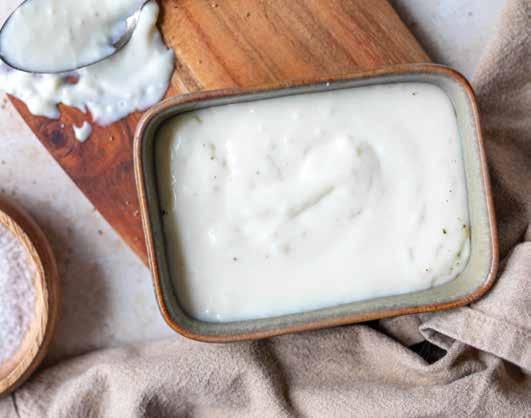
A classic creamy white sauce made from butter, flour and milk, béchamel is the base for everything from mac and cheese to soufflés.
2 tbsp butter
2 tbsp all-purpose flour
2 cups whole milk
½ tsp salt
¼ tsp nutmeg (optional)
1. In a saucepan, melt the butter over medium heat.
2. Whisk in the flour and cook for 1–2 minutes until it smells slightly nutty but doesn’t brown.
3. Slowly whisk in the milk, stirring constantly to prevent lumps.
4. Add salt and nutmeg (if using) and cook until the sauce thickens (about 5 minutes).
5. Use immediately or store for later.
MAKE IT VEGAN
Swap butter for plant-based butter and use an unsweetened non-dairy milk like oat or soy for a creamy texture. A touch of nutritional yeast or miso adds extra depth.
MAKE IT GLUTEN-FREE
Use a gluten-free flour blend or cornstarch to thicken the sauce instead of all-purpose flour.
USE IT IN
Alfredo, creamy vegetable gratins, lasagna or a rich plant-based cheese sauce.

Velouté is made by thickening a light stock (traditionally chicken or fish) with a roux, creating a delicate and velvety sauce.
2 tbsp butter
2 tbsp all-purpose flour
2 cups chicken or fish stock
½ tsp salt
½ tsp white pepper
1. Melt butter in a saucepan over medium heat.
2. Whisk in the flour and cook for 2 minutes until slightly golden.
3. Slowly whisk in the stock, stirring continuously.
4. Add salt and white pepper, then simmer until thickened (about 5 minutes).
5. Use as a base for soups, gravies or light cream sauces.
MAKE IT VEGAN
Use a rich vegetable or mushroom broth instead of animal-based stock. A splash of tamari or white miso adds umami.
MAKE IT GLUTEN-FREE
Substitute rice flour or cornstarch in the roux.
USE IT IN
Light gravies or creamy mushroom sauces, or as a base for dairy-free pot pie filling.
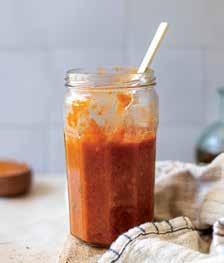
A deeply rich brown sauce, traditionally made with a dark roux, beef stock, tomato paste and mirepoix (onion, carrot, celery).
2 tbsp butter
½ cup diced onion
¼ cup diced carrots
¼ cup diced celery
2 tbsp all-purpose flour
2 cups beef stock
2 tbsp tomato paste
½ cup red wine (optional but recommended)
½ tsp black pepper
1. Heat butter in a saucepan over medium heat. Sauté onion, carrot and celery until soft (about 5 minutes).
2. Stir in flour and cook for 2 minutes.
3. Stir in tomato paste, then slowly add beef stock and red wine while whisking.
4. Add black pepper and simmer for 10–15 minutes until thickened. Strain if desired for a smoother sauce.
4. Add salt and white pepper, then simmer until thickened (about 5 minutes).
5. Use as a base for soups, gravies or light cream sauces.
MAKE IT VEGAN
Use a hearty vegetable stock with tomato paste and a splash of red wine for depth. Roasted mushrooms or caramelized onions bring out the same deep, savoury notes as beef stock.
MAKE IT GLUTEN-FREE
Use cornstarch or arrowroot powder to thicken instead of a traditional flourbased roux.
USE IT IN
Vegan bourguignon, plant-based shepherd’s pie, or as a rich gravy for roasted vegetables.

One of the easiest mother sauces to make plant-based, this is a slowsimmered blend of tomatoes, olive oil and aromatics.
2 tbsp olive oil
1 small onion, finely chopped
2 cloves garlic, minced
1 can (28 oz) crushed tomatoes
1 tsp dried oregano
½ tsp salt
¼ tsp red pepper flakes (optional)
1 tsp sugar (if needed)
1 tbsp butter (for richness)
1. Heat olive oil in a saucepan over medium heat. Sauté onion until soft.
2. Add garlic and cook for 30 seconds.
3. Stir in crushed tomatoes, oregano, salt and red pepper flakes.
4. Simmer for 20 minutes, stirring occasionally. Add sugar if tomatoes taste too acidic.
5. Stir in butter before serving for extra richness.
MAKE IT VEGAN
It’s already vegan! Enhance flavour with sautéed onions, garlic and a pinch of smoked paprika or balsamic vinegar.
MAKE IT GLUTEN-FREE
No changes needed—this one is naturally gluten-free!
USE IT IN
Pasta sauces, pizzas or stews, or as a base for spicy arrabbiata or puttanesca.
Continued on page 27
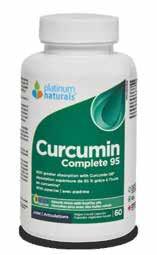

• 95% greater absorption with Curcumin Oil
• Sustained release
• Free from Magnesium stearate
• Canadian owned and operated

® FEATURING
Absorb more with healthy oils
Traditionally made with egg yolks and butter, hollandaise is a creamy, tangy sauce often served over vegetables or eggs Benedict.
3 egg yolks
½ cup unsalted butter, melted and warm 1 tbsp lemon juice
½ tsp salt ¼ tsp cayenne pepper (optional)
1. In a heatproof bowl, whisk egg yolks and lemon juice until thick.
2. Place the bowl over a pot of simmering water (double boiler) and whisk continuously.
3. Slowly drizzle in the melted butter while whisking until the sauce thickens.
4. Remove from heat and stir in salt and cayenne. Serve immediately.
MAKE IT VEGAN
Blend silken tofu with lemon juice, Dijon mustard and a pinch of black salt for an eggy flavour. Whisk in melted vegan butter for a silky finish.
MAKE IT GLUTEN-FREE
This sauce is naturally gluten-free—just check your mustard for hidden wheat ingredients.
USE IT IN
Vegan eggs Benedict, drizzled over roasted asparagus or as a creamy topping for grain bowls.
Learning how to make mother sauces (and adjust them for any diet) is a game-changer. With just a few ingredients and techniques, you can create endless variations—whether you’re whipping up a comforting mac and cheese, an elegant mushroom velouté or a hearty gravy.
Keep a few jars of these sauces in your fridge or freezer, and mealtime will always be delicious, no matter what you’re cooking.

When it comes to feeling healthy, energized and less puffy, the lymphatic system doesn’t always get the spotlight—but it should. This underrated system works behind the scenes to support your immune health, clear waste and reduce inflammation.
Unlike your heart, which pumps blood automatically, your lymphatic system depends on movement, breath and muscle activity to keep fluids flowing. When it gets sluggish, you might notice bloating, brain fog or low immunity. The good news? A few simple at-home practices can help get things moving again—and leave you feeling lighter, clearer and more energized.
What is the Lymphatic System?
The lymphatic system is a network of vessels, lymph nodes and organs that works to:
• Filter waste and toxins;
• Transport immune cells; and
• Regulate fluid balance.
It’s basically your internal clean-up crew—but it can’t do its job without your help. Gentle movement, hydration and targeted stimulation through techniques like lymphatic drainage can go a long way in supporting its function.
What is Lymphatic Drainage?
Lymphatic drainage is a gentle, rhythmic technique designed to encourage the natural movement of lymph fluid throughout the body. You can have it done professionally through massage—or try it yourself at home with a few simple tools and techniques.
When done regularly, lymphatic drainage may help:
• Boost immunity;
• Reduce swelling and puffiness;
• Improve digestion;
• Support clearer skin; and
• Increase energy and mental clarity.
Your lymphatic system is a quiet but essential part of how your body stays healthy, balanced and energized. By incorporating simple practices like dry brushing, breathwork and self-massage, you can support this system naturally—right from home.
HYDRATE
Lymph is mostly water— stay well hydrated to keep it flowing.
MOVE
Walk, stretch, dance—just get moving.
BREATHE DEEPLY
Belly breathing stimulates lymph movement.
ALTERNATE HOT AND COLD SHOWERS
The temperature contrast encourages circulation and flow.
ELEVATE YOUR LEGS
Especially helpful if you’re on your feet all day.
Continued on page 29


Total Body Multi Collagen™ combines five types of collagen, including natural eggshell membrane (NEM®), to reduce wrinkles within 28 days, promote healthy connective tissue, and reduce joint pain associated with osteoarthritis. This ultimate blend of five types of food-sourced collagen is great for the keto and paleo lifestyles. Each scoop provides 10 g of clinically studied hydrolyzed collagen in a neutral-tasting powder ideal for adding to smoothies and drinks.

You don’t need fancy tools or a spa to get started. Here’s how to do a simple full-body routine using a dry brush or your hands.
Before You Start
• Always work with clean, dry skin.
• Use gentle, light pressure.
• Move in the direction of lymph flow—toward the heart and major drainage points; behind the knees, in the groin, armpits and elbows.
• Follow with a warm shower and plenty of water.
Massage Start
Start by activating your lymph nodes with gentle tapping or massaging just above your collarbones, under your armpit and behind your knees. These are key areas where lymph collects and drains. (30 seconds)
1 Feet & Legs
Start at your toes and use long, upward strokes toward your knees, then thighs. Repeat each stroke 5–10 times. Focus behind the knees where major nodes sit.
2 Arms
Begin at the fingertips and brush or stroke upward toward the armpits. Don’t forget the underside of your arms and the back of your elbows.
3 Stomach & Lower Back
Use circular, clockwise motions around your abdomen. Then use sweeping strokes from the lower belly up toward your chest.
4 Chest & Neck
Use light strokes from the chest up toward the collarbones. For the neck, sweep down toward your collarbones from behind the ears and jawline.
5 Back
Use a dry brush or long-handled tool to sweep from the lower back upward toward the shoulders.
Finish
Finish with deep breathing—inhale deeply through your nose, hold for a few seconds and exhale slowly. This encourages lymph flow through the thoracic duct, your body’s main drainage point.
Tools to Try
• Dry brush: Great for stimulating lymph flow and exfoliating skin
• Body oil: Use with hands for smoother glide and hydration
• Jade roller or gua sha: Ideal for facial drainage and de-puffing
• Mini trampoline (rebounder): Supports full-body circulation and lymph movement
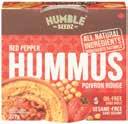

Made with 100% Canadian-grown chickpeas and free from sesame and oil, this tahini-free hummus is smooth, low-fat and just 30 calories per serving. Roasted garlic and red pepper flavours make it perfect for dipping, spreading or smart snacking.







Drawn from a 225-foot-deep island aquifer and triple-filtered, these pure sparkling mineral waters are crisp, clean and naturally refreshing. Infused with real flavours and gentle bubbles, it’s pure hydration with a West Coast twist.


Made from pasture-raised New Zealand cows, this butter is produced in a 50% Indigenous-owned facility powered by geothermal steam. With 82% butterfat, it’s ultra-smooth, GMO-free and packed with deep, natural flavour.




Loaded with brain-loving superfoods, crunchy nuts, juicy berries and a kiss of monk fruit, these bars skip the junk and bring the goodness. No fillers, no refined sugar—just real food to fuel your day, deliciously.
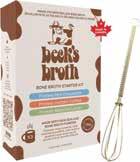




From decadent hot chocolate to oh-so-smooth coffee, these easy-to-mix powders are made with pastureraised beef bones and hot water. Each cup delivers rich taste and nourishing collagen to support gut health, joints and immunity.


Crafted in small batches with just milk and bacterial cultures, this European-style cottage cheese is naturally additive-free. Choose 4% for recipes or 10% for a rich, protein-packed snack or savoury dish.
